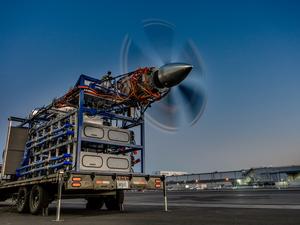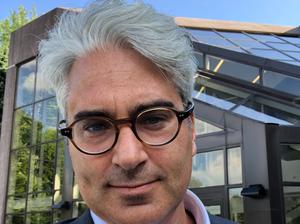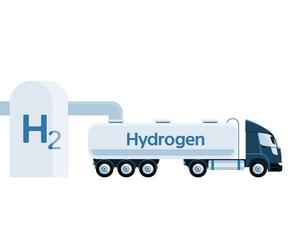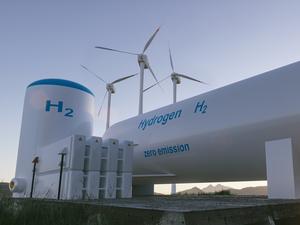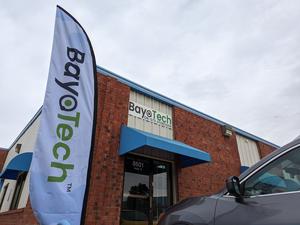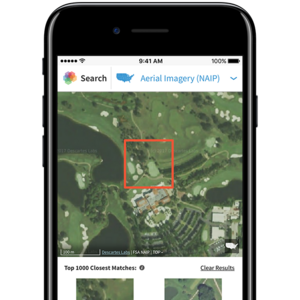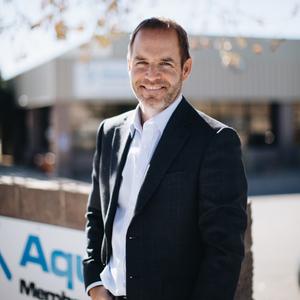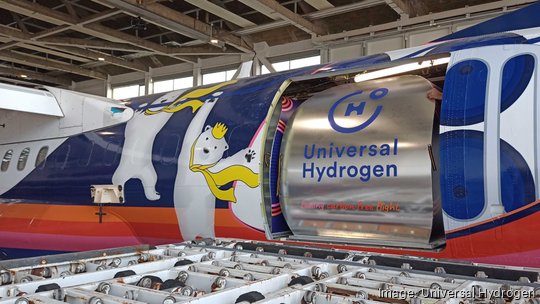
A California clean energy aviation company that has plans to set up manufacturing in Albuquerque just cleared two milestones on its path toward hydrogen fuel cell-powered flights.
One of those milestones came last weekend when Universal Hydrogen successfully ran a taxi test of an aircraft retrofitted with its fuel cell-powered electric powertrain. The test, carried out at an airfield in Moses Lake, Washington, showed the Hawthorne, California-based company how its powertrain retrofit kit performed at low-power settings and airspeeds, according to a news release.
Universal Hydrogen, founded in 2020, used a Dash 8-300 aircraft manufactured by De Havilland Canada to run the test. It's one of two aircraft — including the ATR 72, which is manufactured in France — that the company has retrofitted with the powertrain kit. But Jon Gordon, Universal Hydrogen's co-founder and general counsel, told Albuquerque Business First in January that the company has over 200 planes currently signed up to be retrofitted with the fuel cell kit.
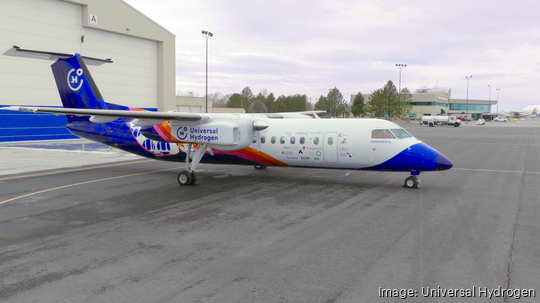
Last March, Universal Hydrogen announced its plans to build a 50-acre, near $300 million manufacturing and distribution facility on a parcel of land near the Albuquerque International Sunport. The company plans to break ground on the facility this year and start manufacturing there in 2024, Gordon said. One year later, in 2025, Universal Hydrogen wants to see its powertrain deployed on aircraft used for commercial passenger service.
It's a quick timeframe, Gordon said, and one that relies on a mix of financial and regulatory support. He said the $10 million in Local Economic Development Act incentives that New Mexico committed toward Universal Hydrogen's Albuquerque facility was key to getting the ball rolling.
"We've got a lot to do in three years," he said. "Every dollar counts. We're moving fast."
Gordon's company on Tuesday announced that it earned a special experimental airworthiness certificate from the Federal Aviation Administration. That certification clears the way for Universal Hydrogen to run a full test flight of its powertrain-retrofitted aircraft. Gordon said that could happen in the first quarter of this year.
According to the FAA's website, experimental airworthiness certificates are issued to companies to conduct aircraft operations for research and development, or to show compliance with regulations, among other uses.
Through a spokesperson, the FAA declined to comment.
If the retrofitted plane does take to the skies, it'd be the largest hydrogen fuel cell-powered aircraft to fly, according to the company, which also announced on Tuesday it was selected to the zero-emissions plane group of Air New Zealand, New Zealand's flagship airline based out of Auckland.
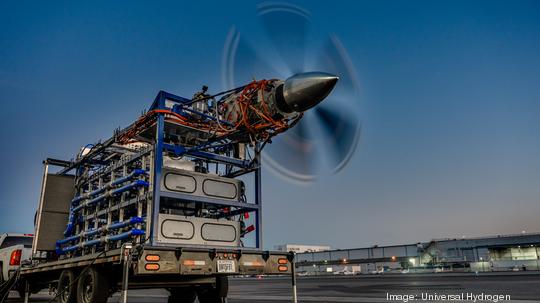
Besides its powertrains, Universal Hydrogen also wants to build modules to store and transport hydrogen. The company would use its Albuquerque facility to manufacture those modules.
Universal Hydrogen's powertrain retrofit kits are used to "spur adoption" of the company's hydrogen transportation and storage modules, a spokesperson for Universal Hydrogen said in a Feb. 7 email to Business First.
Combined, its model is similar to a Nespresso machine, Gordon told Business First in January. The aircraft, manufactured externally, is the coffee machine while Universal Hydrogen's fuel cell-powered electric powertrain is the pod filled with coffee.
“We are simultaneously providing a pragmatic, near-term solution for hydrogen infrastructure and delivery, as well as for converting existing passenger aircraft to use this lightweight, safe and true-zero-emissions fuel,” said Paul Eremenko, co-founder and CEO of Universal Hydrogen, in a prepared statement.
